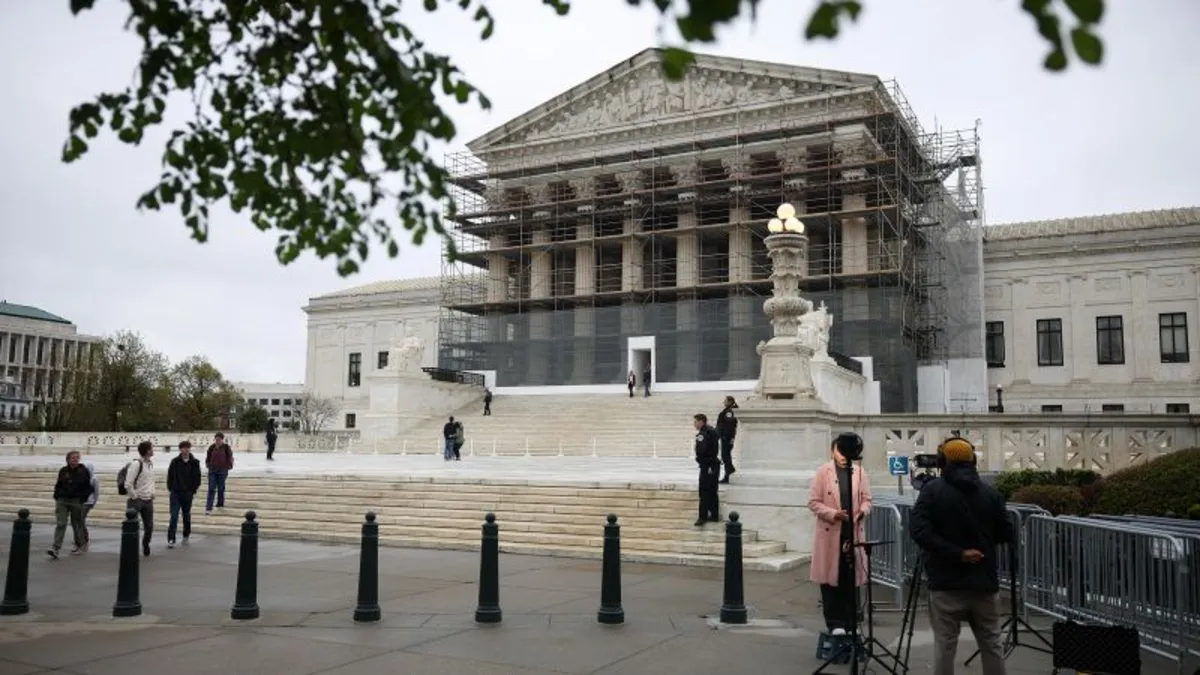
On Monday, the Supreme Court made a significant ruling that allows President Donald Trump’s administration to proceed with plans to revoke temporary deportation protections from potentially hundreds of thousands of Venezuelans. This decision pertains to a crucial humanitarian relief program known as Temporary Protected Status (TPS), which has been a lifeline for many Venezuelan migrants in the United States.
The high court's decision, rendered in a brief and unsigned order, permits the administration to end TPS, a move that immigration attorneys warn could expose more individuals to the risk of deportation. Advocates for immigrant rights have condemned the ruling, with Ahilan Arulanantham, co-director of the Center for Immigration Law and Policy at UCLA School of Law, stating that this action represents “the largest single action stripping any group of noncitizens of immigration status in modern US history.”
In a somewhat ambiguous second paragraph of the order, the court refrained from determining whether the administration can revoke work authorizations and other benefits linked to TPS that had previously been granted. This lack of clarity raises concerns about how many individuals may be affected and what the ruling will mean for their existing benefits.
The Supreme Court’s ruling is not the final word on the matter. The case is set to be reviewed by the 9th US Circuit Court of Appeals, which will examine the decisions made by the Trump administration regarding the revocation of TPS for Venezuelans. This ongoing legal battle centers on the claim that the administration’s actions were driven by racial and political hostility.
Justice Ketanji Brown Jackson was the only member of the court to publicly express dissent. Several attorneys involved in the case criticized the vagueness of the ruling, arguing that it empowers the Trump administration to define how the order will be executed. Jessica Bansal, one of the attorneys representing the plaintiffs, remarked on the ambiguity of the ruling, stating, “The case now continues under the shadow of an unexplained two-paragraph order with an unclear impact.”
This year, Homeland Security Secretary Kristi Noem initiated moves to terminate TPS for Venezuelan migrants, affecting over 300,000 individuals who are set to lose their protections by early April. Additionally, another 250,000 immigrants who arrived before 2023 are also expected to lose their status in September. A pivotal aspect of the proceedings was whether Noem had the authority to revoke the existing TPS designation prior to its expiration.
The TPS program was established by Congress in 1990 to offer temporary protection to migrants from nations experiencing natural disasters, conflict, and other hazardous conditions. Venezuela, which has been described as facing “the worst humanitarian crisis in the Western Hemisphere,” was first granted TPS by the Biden administration in March 2021, citing the country's escalating instability. This status was subsequently expanded in 2023.
Venezuelan migrants under TPS have contested Noem’s sudden termination of these protections, claiming it violated the Administrative Procedure Act, which mandates specific protocols for federal agencies when enacting policy changes. A federal district court in California had temporarily blocked Noem’s order, with Judge Edward Chen highlighting Venezuela's dire situation, including risks of wrongful detentions, terrorism, and civil unrest.
This story will continue to evolve as further developments arise in this pivotal legal battle regarding the future of Temporary Protected Status for Venezuelan nationals in the United States.